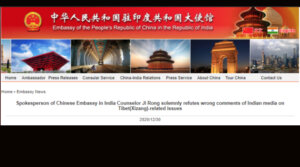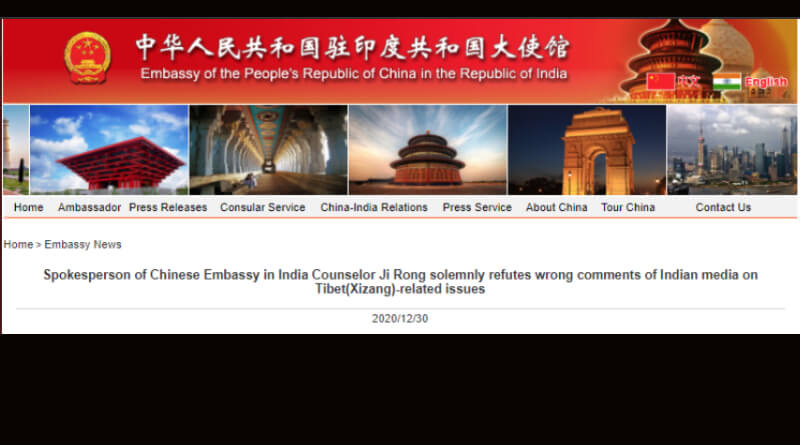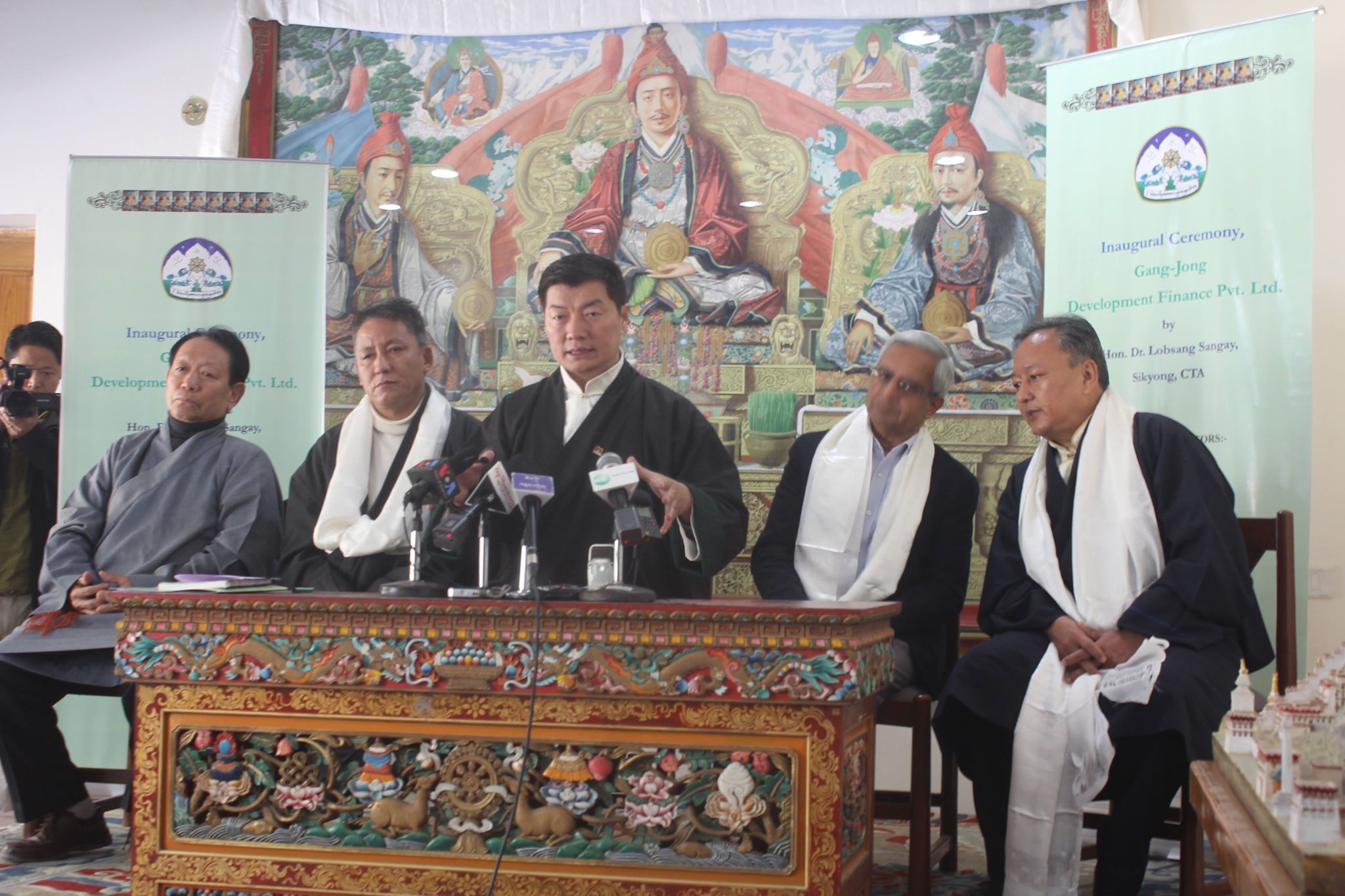China wants Indian media to do more to advance China-India bilateral relations, stop advocating playing “Tibet card” to strain ties

DHARAMSALA, 31 Dec: Claiming Tibet as part of China since ancient times, China has warned India media against “using Tibet card to meddle in China’s internal affairs” and declared Tibet an internal matter.
The Chinese Embassy in New Delhi accused few Indian media of publishing “wrong comments openly supporting the so-called Tibetan Policy and Support Act” of the United States and advocating Indian interference in China’s Tibet(Xizang) affairs.”
Tibet has been part of China since ancient times, And Tibet affairs are purely China’s internal affairs that allow no foreign interference, the Chinese embassy spokesperson Ji Rong said in a stated in the strongly-worded statement issued on Wednesday.
“We hope some Indian media take an objective and fair stance on issues concerning China’s sovereignty and territorial integrity, grasp the highly sensitive nature of Xizang-related issues, look at Xizang’s economic and social progress objectively, do more to help China-India bilateral relations move forward instead of advocating playing “Tibet card” to meddle in China’s internal affairs and further damage the bilateral relations,” Ji Rong said in the statement.
The spokesperson has further stated that “It is in the fundamental interests of China and India, as two neighbouring countries and emerging economies, to enhance political mutual trust, properly manage differences, and strive to return China-India relations to the track of healthy and stable development.”
“The Chinese government is determined in safeguarding national sovereignty, security and development interests. China firmly opposes any country, organization or individual supporting the anti-China separatist activities of the “Tibetan independence” forces in any form and under any pretext,” the statement read.
She further called the Tibetan Policy and Support Act of 2020 that US President Donal Trump signed into law on Sunday a “maliciously distorts [Tibet’s] social development, makes groundless accusations, denigrates China’s ethnic and religious policies, and interferes in the normal reincarnation procedure of living Buddhas under the pretext of human rights and religion”.
The Statement further demanded restraint from India bringing up the “Declaration on Principles for Relations and Comprehensive Cooperation” signed by Beijing and New Delhi in 2003,” under which she said India “recognised Tibet Autonomous Region as part of Chinese territory, and didn’t allow Tibetans to engage in political activities against China.”






